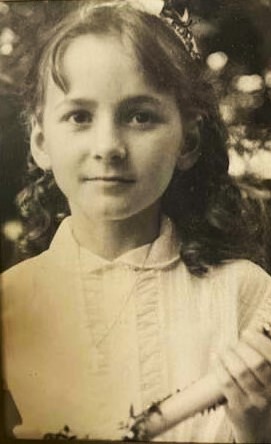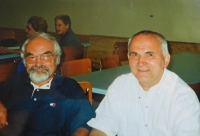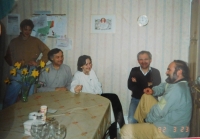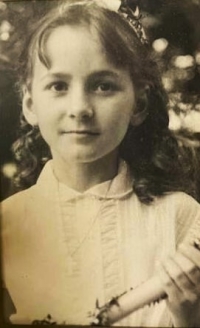Mary, don’t bring crap, bring Solženicyn instead

Download image
Marie Byron was born on November 4, 1950 in Velke Opatovice as the youngest child to parents Maria and František Lízna. She grew up with two older brothers, Vladimír (1940), whom she helped to emigrate many years later under dramatic circumstances, and František (1941-2021), a well-known Jesuit priest, political prisoner, and pilgrim who cared for the marginalized. Her parents were persecuted for their political and religious views, and her father was imprisoned for a year by the Communists in the TNP (Forced Labour Camp) in the 1950s. In 1968 she travelled to Scotland by invitation, where she stayed for a year after the invasion of the VS (Warsaw Pact) troops. On her brief return to her homeland, she married an Englishman, John Westlake, in 1969 and together they went permanently to England where they had a total of 10 children. During her frequent visits to Czechoslovakia, she illegally transported banned literature, which put her in the finder of State Security Service (StB). After 1990, many young people from the Czech Republic came to live with her in Scotland, for whom she arranged various temporary jobs and babysitting and became a support and base for them in a foreign country with her kind attitude. In 1995, she divorced and found herself in a difficult situation and had to take care of her seven dependent children without financial support. She remarried in 2000 to Richard Byron (1944-2010) and currently (2024) lives in Buckie, near Elgin, Scotland.


